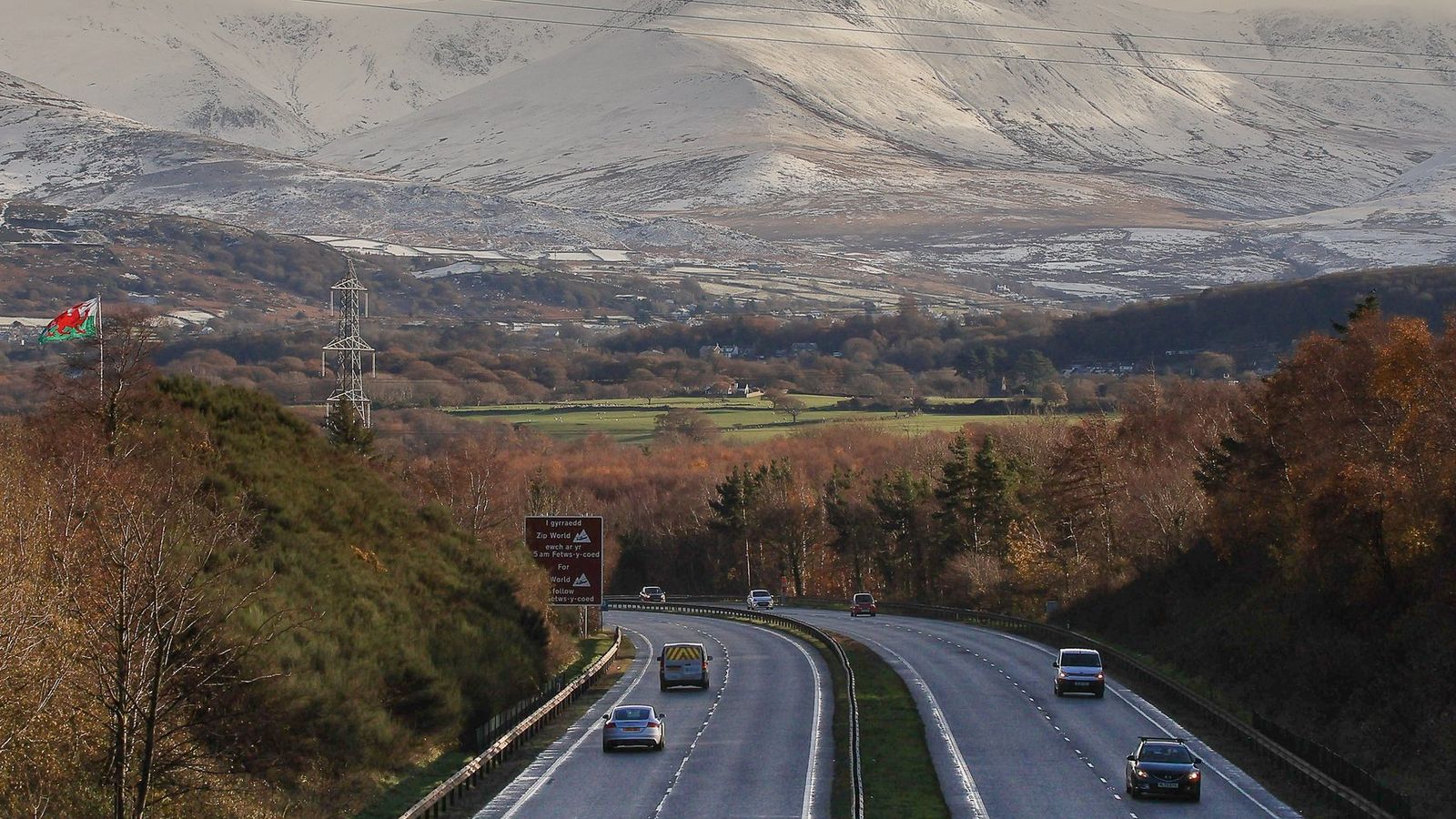Christmas travel: The roads to avoid as millions of drivers embark on festive getaway

It’s that time of year again – millions of drivers will take to the roads to join family or friends for Christmas, or just to get away for a festive break.
The busiest days for travel will be 23 December and Christmas Eve, with the AA estimating that each of those days will see nearly 17 million cars on the roads.
A survey of more than 12,000 motorists indicated that 51% plan to make a car journey on 23 December, and 50% plan to make one the following day.
Business-related travel is expected to drop off after 16 December until the new year, while 17 December is expected to be the busiest day for high streets, retail outlets and shopping centres.
The busiest roads are likely to be:
• M25
• M5 between Bristol and Weston-super-Mare
• M6 around Birmingham
• M1 from Luton northwards
• M60 and M62 in northwest England
• M4 which runs between west London and southwest Wales
• M27 in Hampshire.
AA president Edmund King said: “Our expert patrols will be working throughout the holidays to help fix cars that suffer problems, while providing assistance to drivers should they be involved in a crash.
“Many breakdowns are preventable, so checking your vehicle before you set off is very important.”
Read more:
Christmas rail strikes to go ahead as union rejects offer from operators
Strikes every day before Christmas – which sectors are affected and why
Advertisement
Disruption to rail services due to industrial action and engineering work will also increase traffic volumes, as many people are forced to resort to car travel.
Transport Secretary Mark Harper has criticised unions representing railway workers, who will stage two 48-hour strikes this week in the latest episode of their dispute over pay and conditions.
Writing for The Daily Telegraph, Mr Harper said: “This year, many families may have no choice but to alter their plans and have a virtual Christmas again.
“This isn’t due to a new public health pandemic, but because of rail strikes, planned by the RMT union to cause misery during the festive period.”
He said the “dire” situation was not “inevitable”, calling on the RMT union to call off the strikes.
Please use Chrome browser for a more accessible video player
1:02
Is government scuppering a rail deal?
RMT general secretary Mick Lynch has written to Prime Minister Rishi Sunak, saying that a meeting between them is now the best chance for progress.
But Mr Harper said that the government had “played its part” in attempting to bring the dispute to a close.
He wrote: “I want this dispute to end as soon as possible. We have agreed to continue our efforts to reach a deal whilst remaining fair to the taxpayer.
“In the first few weeks of this new government being in office, we have demonstrated that we are willing to be reasonable – to discuss matters with union leaders face to face and to try and facilitate a resolution to this dispute by enabling a new and improved pay offer to be made by the employers.”